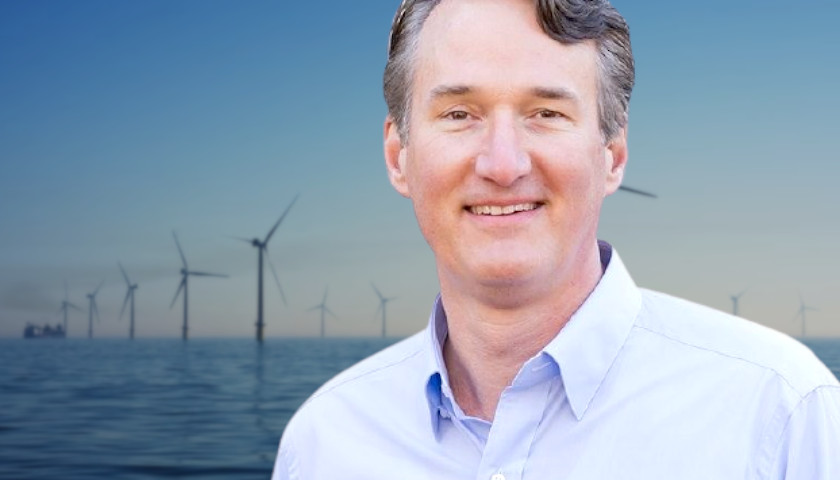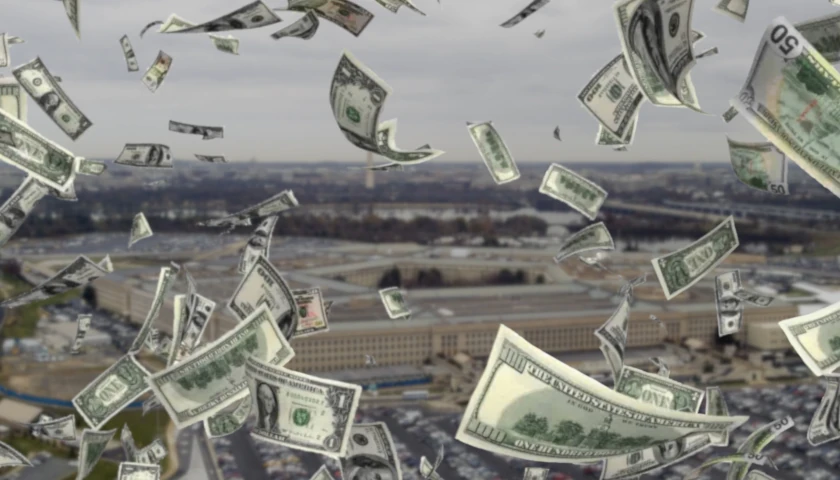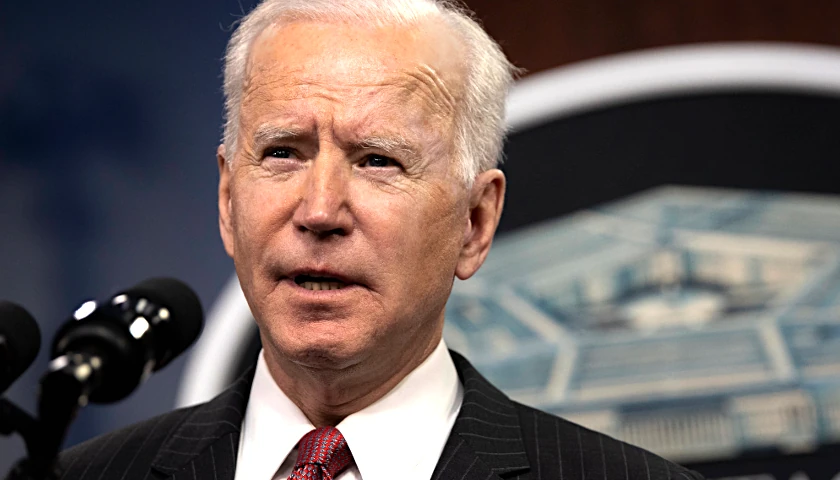Governor-elect Glenn Youngkin announced that he will use an executive order to pull Virginia from the Regional Greenhouse Gas Initiative (RGGI), an 11-state cap-and-trade initiative aimed at reducing utility carbon dioxide emissions by requiring utilities to bid for carbon dioxide allowances in state auctions. Youngkin’s commitment is one of his first specific energy and environmental policy statements, but he couched it as part of his broader plan to lower Virginians’ cost of living.
“RGGI will cost ratepayers over the next four years an estimated $1 billion to $1.2 billion,” Youngkin said Wednesday to the Hampton Roads Chamber of Commerce. “RGGI describes itself as a regional market for carbon, but it is really a carbon tax that is fully passed on to ratepayers. It’s a bad deal for Virginians. It’s a bad deal for Virginia businesses, and as Governor, I will withdraw us from RGGI by Executive Action. I promised to lower the cost of living in Virginia and this is just the beginning.”
“We’ll also need to address over-taxation. Virginians were overtaxed $2.6 billion last year, it’s gonna be even more this year, and oh, by the way, as we move into Fiscal Year ’23 and ’24, it’s expected to grow beyond that. My Day One plan calls for significant tax reduction.”
Virginia was the first state in the South to enter RGGI. According to a 2020 announcement from Governor Ralph Northam, proceeds from the auctions go to community flood preparedness, coastal resilience, and energy efficiency programs for low-income Virginians.
“As the southernmost state to join RGGI, Virginia is sending a powerful signal that our Commonwealth is committed to fighting climate change and securing a clean energy future,” Northam said at the time. “This initiative provides a unique opportunity to meet the urgency of the environmental threats facing our planet, while positioning Virginia as a center of economic activity in the transition to renewable energy.”
Youngkin’s statement was praised by House of Delegates Republicans.
“I applaud Governor-elect Glenn Youngkin for his pledge to remove Virginia from the Regional Greenhouse Gas Initiative. Public policy must achieve results. If it doesn’t, then it’s not good policy,” Speaker-designee Todd Gilbert (R-Shenandoah) said in a press release. “Virginia’s participation in RGGI was premised on the fact that it showed ‘leadership’ in combating climate change. The cost of RGGI to Virginia families and businesses is very real, while the impact of RGGI on climate change is negligible at best — a fact that was documented well before outgoing Governor Northam opted the Commonwealth into the pact.”
Delegate Glenn Davis (R-Virginia Beach) told The Virginia Star that RGGI’s costs are being passed on to consumers instead of being absorbed by utilities.
“If Governor Northam wanted to tax individuals for environmental mitigation, then he can tax individuals, but there’s no reason that he needed to involve a middle man in this and try to hide the cost in utility bills,” Davis said. “The thought was that this would create incentives for Dominion and other energy companies to go to renewable energy, but the problem is if they can recover their costs, there’s no incentive there, and that’s what’s happening. People that support RGGI don’t understand RGGI.”
Davis said Republicans do care about mitigating the effects of sea level rise.
“We all understand the importance and threat of sea level rise and we want to work to mitigate the flooding in our neighborhoods. But you can do it in a transparent manner and all RGGI did was try to hide the cost inside of your energy bill and not be transparent with Virginians and the consumers.”
Congressman Donald McEachin (D-VA-04) criticized Youngkin’s announcement in a press release.
“This decision will ultimately reduce revenue for the Commonwealth and slow our efforts to mitigate climate change while further disenfranchising historically underserved communities. Just last year, the Commonwealth received more than $227 million through the RGGI’s cap-and-trade investment program – half of which was dedicated to low-income energy efficiency programs to help the most vulnerable communities among us,” McEachin said.
“The Governor-elect’s claims that Virginians are bearing the financial burden of this program are ridiculous. The average Virginian saw a $2.39 increase in their monthly bill – an increase that helped their vulnerable neighbors and aided in our ongoing efforts to fight climate change,” he said.
Youngkin Energy Policy
Youngkin also addressed his broader energy policy goals. He said that Virginia needed to be involved in the manufacturing of wind-power components — which will require natural gas.
“When it comes to energy policy, I will be clear: I will be an aggressive champion of all of the above. And yes, that includes wind and solar. But it also includes clean-burning, clean-burning fossil fuels, and it includes nuclear. We have unique capabilities in the Commonwealth when it comes to the possibility of including nuclear power on a modular basis in our power grid.”
He said, “We need a diverse energy portfolio that meets all our residential, commercial — oh by the way, industrial and national security needs. We also need it to be affordable and reliable. And Hampton Roads understands all of that so well.”
Youngkin said he supports the Virginia Reliability Project, which will expand Hampton Roads’ natural gas supply.
“This additional capacity is critical to the future of Hampton Roads. Broadly, for industry, but specifically, the Virginia offshore wind project needs this supply in order to fuel our manufacturing capabilities that Siemens Gamesa will bring to manufacturing turbines,” he said. “Reliable energy and renewable energy are not in opposition. We must work hand-in-hand to make it happen.”
– – –
Eric Burk is a reporter at The Virginia Star and The Star News Network. Email tips to [email protected].
Photo “Glenn Youngkin” by Glenn Youngkin.








